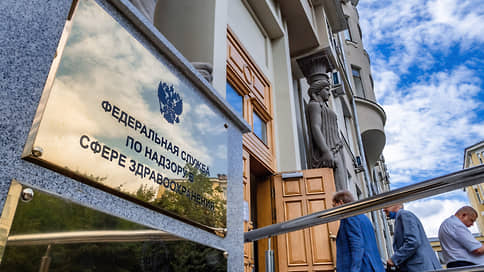The Council of Public Organizations for the Protection of Patients’ Rights under the Moscow Roszdravnadzor turned out to be not particularly public
[ad_1]

Kommersant drew attention to the new composition of the council of public organizations for the protection of patients’ rights under Roszdravnadzor in Moscow and the Moscow region. It included a large number of chief physicians of hospitals, while the number of representatives of public organizations, on the contrary, was reduced from 16 to three people. Public activists believe that the metropolitan department of the department does not want a dialogue with patients and human rights activists. The Federal Council under Roszdravnadzor recommended that the Moscow colleagues bring the composition of the council “in line with its position.”
At the end of April, the department of Roszdravnadzor for Moscow and the Moscow region approved the new composition of the council of public organizations for the protection of patients’ rights. This is an advisory body that should supervise the work of medical institutions on a gratuitous basis. The council included 20 people, including 13 doctors (for example, the chief doctors of Moscow hospitals and clinics No. 1, 10, 121, the Children’s City Clinical Hospital named after Z. A. Bashlyaeva, the Odintsovo Regional Hospital and the deputy head physician for the medical unit for the work of the Kommunarka Perinatal Center) . Aleksey Lundup, Director of the Research and Educational Resource Center for Cellular Technologies of the Peoples’ Friendship University of Russia, became the Chairman. At the same time, only three representatives of public organizations turned out to be members of the council – this is the vice-president of the Russian rheumatological association “Nadezhda” Polina Pchelnikova, the president of the Moscow Society of Multiple Sclerosis Olga Matvievskaya and the activist of the all-Russian public organization “Council of Mothers” Olesya Makhova.
The last council worked from 2019 to 2023. It consisted of 24 people, of which 16 represented patient organizations (oncology, diabetes, cystic fibrosis, skin diseases, Gaucher’s disease) and charitable foundations. Also included were lawyers and doctors representing professional associations (Society of Dermatovenereologists and Cosmetologists, Independent Psychiatric Association). Lawyer Yury Kapshtyk, a member of the previous council, recalls that Roszdravnadzor is a controlling body, “a medical prosecutor’s office that evaluates the actions of doctors,” and advice is needed with it “so that the voice of society is heard.” Mr. Kapshtyk is sure that the Council has lost its relevance in the new composition. “Representatives of associations of the disabled are completely excluded, but a large number of chief doctors, their deputies, heads of clinics in general, people who, according to their subordinate subordination, are just subject to verification,” he says. In his opinion, a “management structure is being created that will be interested only in creating positive statistics.”
Polina Pchelnikova, Vice-President of the Nadezhda Rheumatological Association, has worked both in the past and in the current board. She notes that there has not been a single meeting yet, so it is still difficult to assess the quality of the work of the new composition, “but, in my opinion, if the proportion of patient public organizations were higher, this could increase the likelihood of more effective work.” According to her, in the past composition of the public, in particular, dealt with the problems of preferential drug provision of Muscovites. They conducted a study of the provision of nurses in hospitals subordinate to the Moscow Health Department, assessed the provision of nurses in intensive care units and developed proposals to eliminate the shortage of these specialists. There were works on the analysis of the situation with the provision of services of cosmetologists, including the collection of information on the availability of the necessary licenses. Another member of the council, who wished to remain anonymous, said that together with colleagues he understood why medical institutions were reluctant to report the side effects of drugs, discussed the presence of nurses in schools and their functionality.
Ms. Pchelnikova claims that she was included in the new composition of the council after she wrote the appropriate application. However, Yuri Kapshtyk says that the Moscow Roszdravnadzor did not notify the public that their powers had been terminated and that they needed to write applications to continue working. According to him, he and his colleagues learned about the new composition of the council only when the order appeared. Kommersant failed to get a comment from the Roszdravnadzor department for Moscow and the region on the basis of which new members of the council were selected. The new chairman of the Moscow branch of the council, Alexei Lundup, also did not answer Kommersant’s questions.
The Council of Public Organizations for the Protection of Patients’ Rights under the federal Roszdravnadzor studied Mr. Lundup’s resume and saw “lack of experience in working with public structures.” This was announced to Kommersant by its head, co-chairman of the All-Russian Union of Patients, Yan Vlasov. Members of the federal council “expressed reasonable doubt that without such experience it is possible to head the council,” Mr. Vlasov said. “The lack of such experience as a whole is not a sentence and may well be compensated by other competencies of the candidate. But then we saw that the provisions of the council were grossly violated – the number of representatives of patient organizations turned out to be less than the prescribed 50%, which means that there are high risks that the issues under consideration will be resolved not in favor of the patients, – says Yan Vlasov. – Therefore, we recommended accepting a new chairman for a trial period of three months and we will invite the head of the federal Roszdravnadzor and the persons in charge of the work of the councils to discuss the situation in order to bring the composition of the Moscow council in line with its position.”
[ad_2]
Source link








